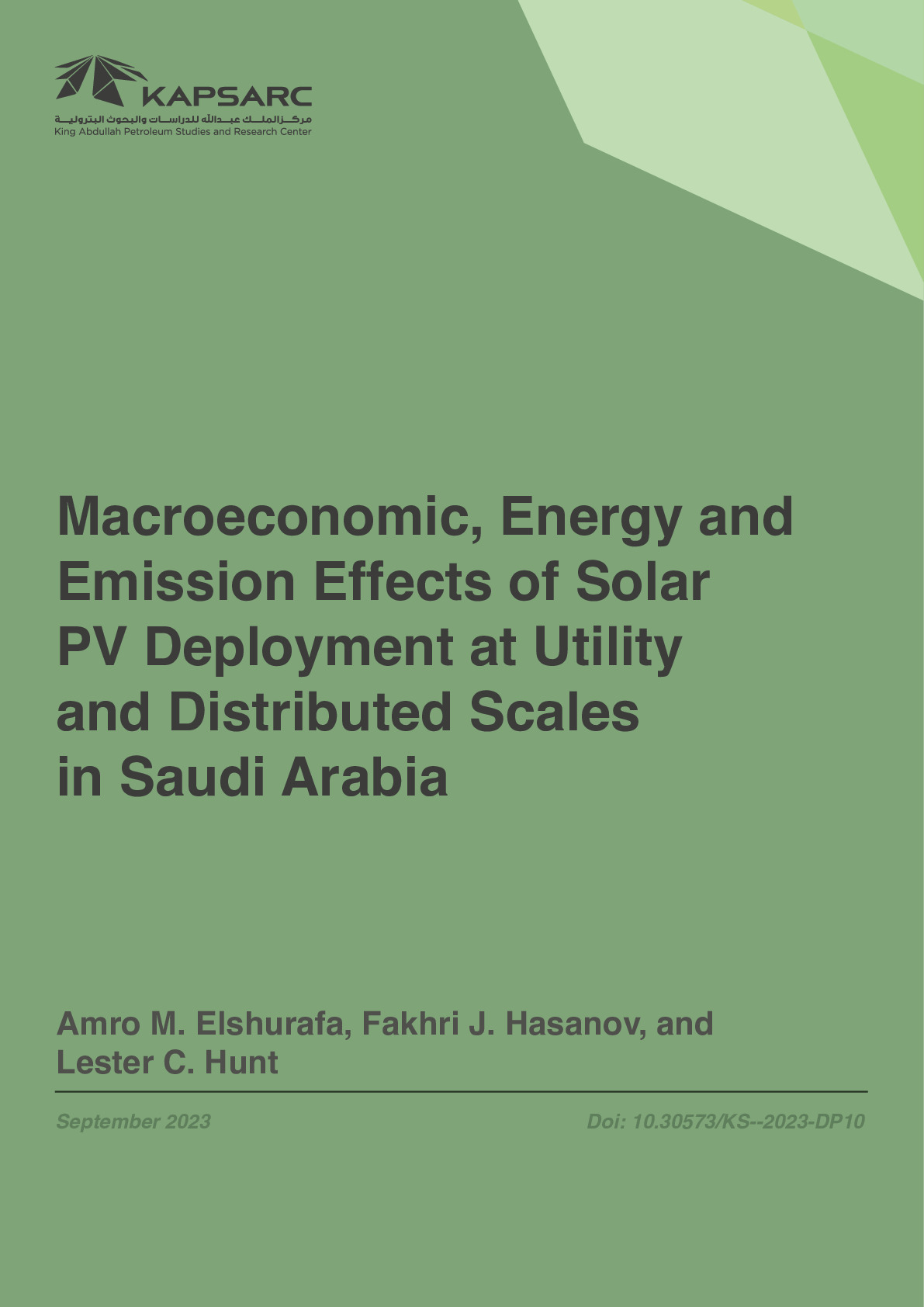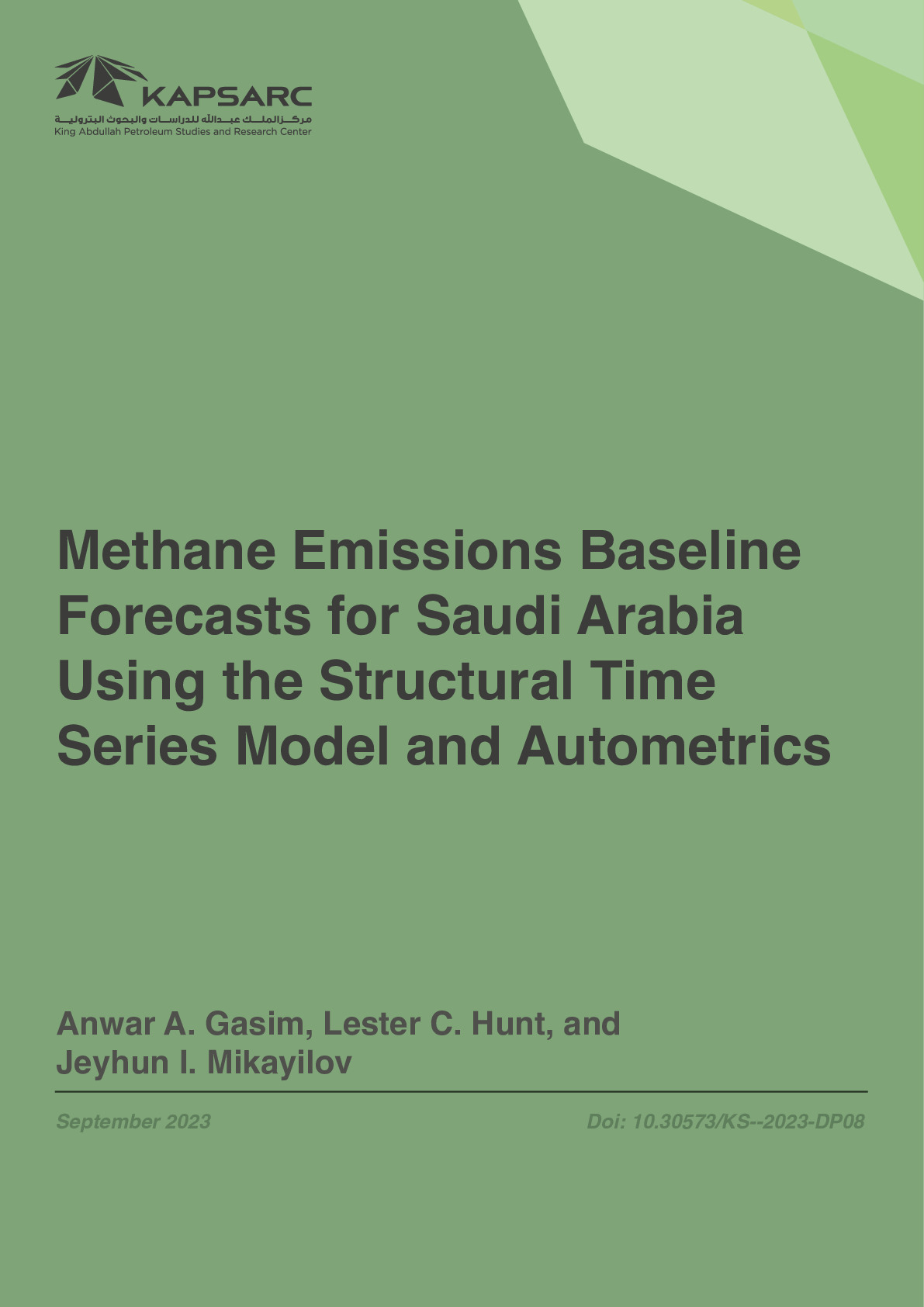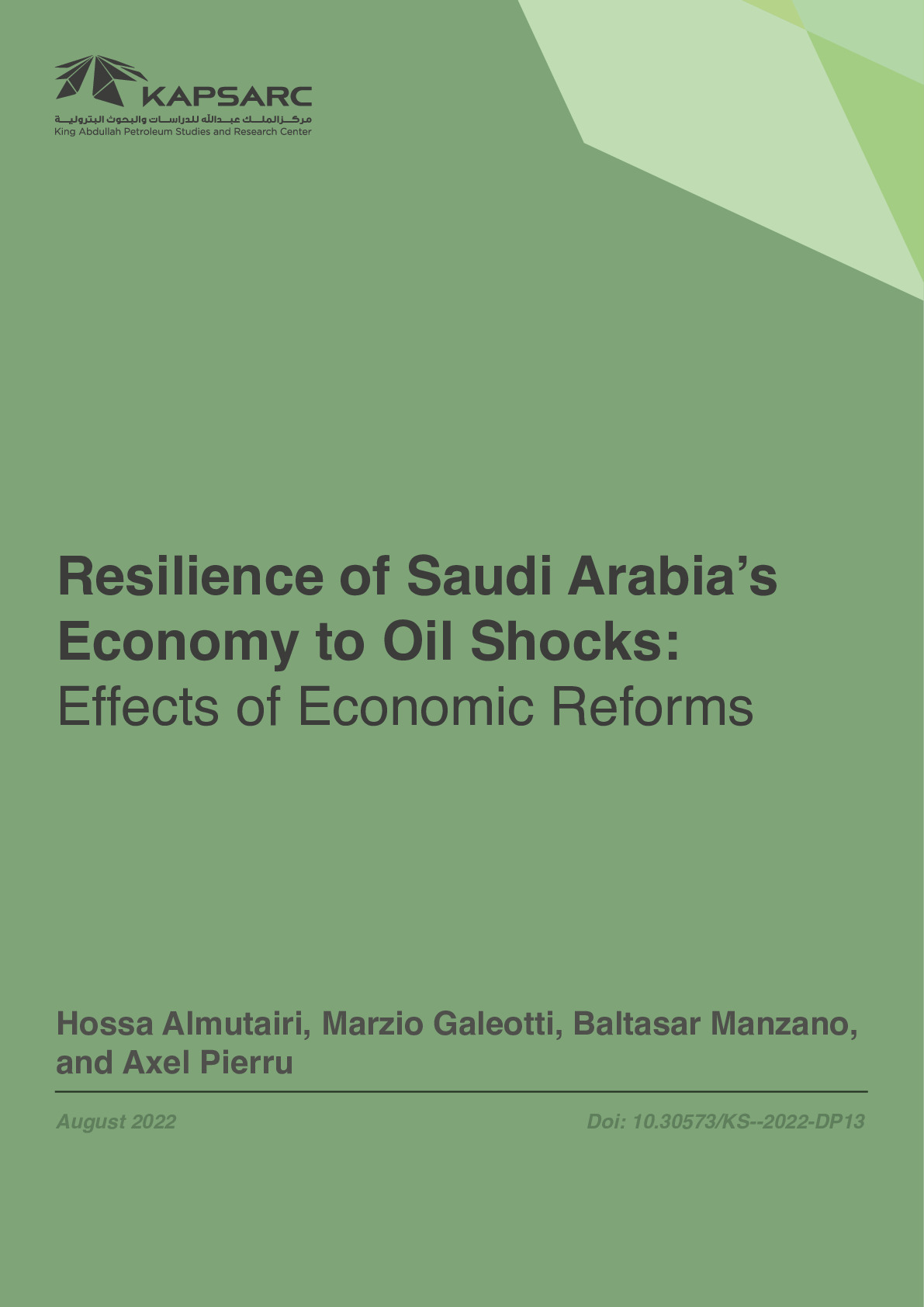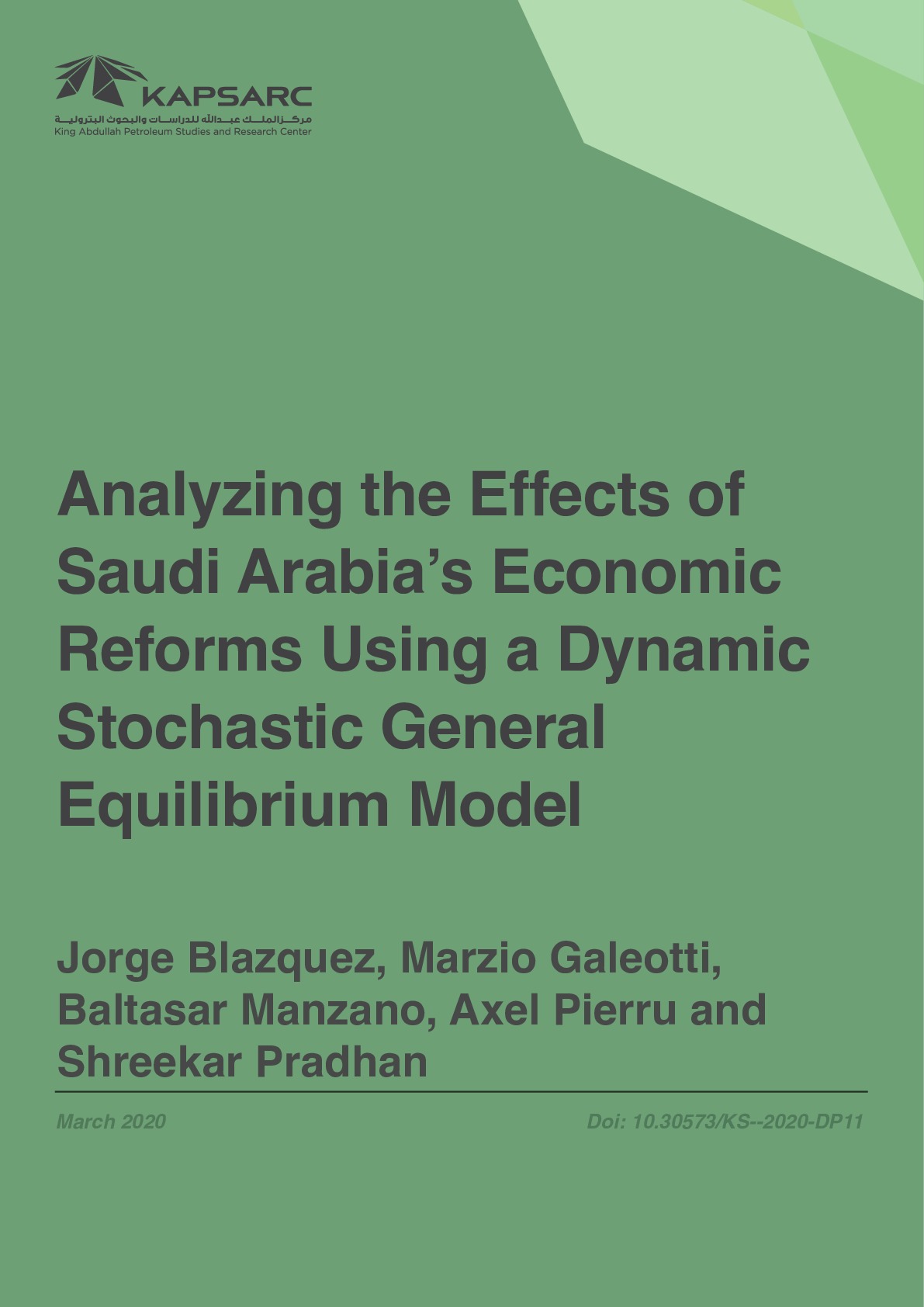In 2016, the Kingdom of Saudi Arabia (KSA) announced its Vision 2030 strategic plan incorporating major changes to the economic structure of the country, including an intention to deploy 9.5 GW of renewable energy in an effort to reduce the penetration of oil in the electricity generation system. This paper assesses the macroeconomic impact of such changes in the KSA, coupled with reductions in implicit energy subsidies. Based on a dynamic general equilibrium model, our analysis suggests that if the KSA government were to deploy a relatively small quantity of renewable technology, consistent with the country’s Vision 2030 plans, there would be a positive impact on the KSA’s long run GDP and on households’ welfare. However, we demonstrate that if the integration costs of renewable technology were high, then households’ welfare would be maximized at around 30-40% renewables penetration. In addition, we show that a policy favoring renewable energy would increase the dependence of the KSA on oil, given that a larger share of GDP would be linked to oil exports and so, potentially, to oil price shocks. Finally, it is shown that exporting significantly more oil onto the international market could have a negative impact on the international oil price and thus could offset the potential gains from the renewable energy policy. © 2017 by the IAEE. All rights reserved.







